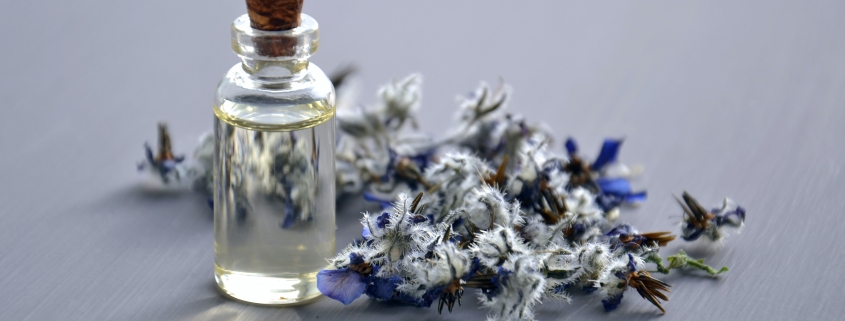Essential Oils: Ingestion, Inhalation & Topical Use
When I first began using essential oils, I avoided the big multi-level marketing companies – first, because of the price of their oils and secondly because I wanted a real education about essential oil and not just a superficial understanding of what to use in a diffuser, cleaning or personal products. In my research, I came across Aromahead Institute and quickly realized that these folks are the real deal, and I don’t hesitate to refer people to them for sound advice.
Internal Use/Ingestion
The following is a compilation of snippets from my research on the topic of essential oils for internal use/ingestion (click each link to read the full source article). Let me lead with this spoiler alert from Dr. Sarah Ballantyne:
“If its from an edible thing that you want the benefits from,
just eat the thing!”
“Internal use requires knowledge of anatomy, physiology, and the chemistry of essential oils. Oils should be used via the skin and inhalation until you understand the potential interaction of drugs and essential oils, know the safe oils to use (the safety issues are different for skin and internal use), and know the right dose and route of application appropriate for internal use. Internal use also requires an understanding of pharmacokinetics–effects of the body on the oil, how the body metabolizes the oil and eliminates it, and what organs might be effected. —It sounds complicated because it is—and that’s why we don’t widely recommend internal use.”
- Safely ingesting certain essential oils is wrought with caveats and debate, and it’s not recommended without guidance from a trained herbalist. “The whole purpose of distilling the aromatic components [from plants] was because we wanted to capture their smell,” says Amy Galper, aromatherapist and co-founder of the New York Institute of Aromatic Studies. “We understood the power of aroma [to affect] our mind, our spiritual life, and our physical health.” Ingesting, therefore, is outside of boundaries of essential oils’ intended use—enough reason to proceed with caution. … Essential oils may be natural, but that doesn’t mean they’re inherently safe. “The molecules and chemical constituents that make up essential oils are irritating to mucous membrane tissue,” Galper says. Swallowing essential oils can burn the mucosa in your mouth, esophagus, gut lining, and beyond in the digestive tract.
- Dr. Lin says, “I usually caution people against taking it orally is because it’s a really strong medicine…You can take too much, too quickly without realizing it. And that can become toxic. Nausea, stomach pain and neurological discomfort like nerve pain and numbness can also occur, especially if you take too much. Like any kind of medicine, it can affect different people in different ways, too.”
- Moral of the story: It’s possible to ingest essential oils safely, but it’s complex and should always be done under the guidance of a trained herbalist. A professional will know which oils are safe and work with you to administer correct, non-toxic doses.
– Source: Well and Good – An Aromatherapist & MD Weigh in on Essential Oils
- Phytochemicals can be anti-inflammatory, immunomodulatory, anti-angiogenic (prevent the formation of blood vessels, great for fighting tumors), apoptosis (helps cells dies), anti-allergy, anti-mutagenic, anti-microbial, insect repellents, etc.
- BUT they are cytotoxic: they rupture membranes and cause cells to die. So they ARE NOT SPECIFIC to bad microbes! They’ll kill your friends in your gut! NOT GOOD!
- Terpenes are damaging to the liver. That’s also NOT GOOD!
- They may also cause a leaky gut.
- Drinking essentially oils is not a great idea.
- There are some essential oil compounds that are more specific, and effective to kill influenza and E. coli, Staphylococcus, etc. BUT some kill the good’uns.
- Ingesting is complicated! There are many interesting studies, but lots of pros and cons. We don’t know everything that these properties do!
- If you want these effects, just eat the whole food!
- Only use oral consumption with the supervision of a doctor who knows what they are doing.
- The science is not very strong for most purported benefits (of ingestion). Most papers indicate that we need more research. But, really, if its from an edible thing that you want the benefits from, just eat the thing.
– Source: The Paleo Mom Podcast – What’s the Deal with Essential Oils
You should bear in mind that essential oils effect every person very differently (whether they are use in aromatherapy, topically or orally) – they are very individualized and can be dangerous – and as with everything we inhale, ingest or apply to our skin there is NO one-size-fits all approach. That said, you should PERSONALLY consult an herbalist or your medical professional before you decide if ingesting essential oils is right for you. Simply finding information online that indicates it’s safe to use this oil or that oil is not wise for the reasons outlined in the references above.
Aromatherapy & Topical Use
Okay, so if it’s not advisable to use essential oils internally is there any point discussing the topic any further for our purposes on the AIP? Yes, absolutely! There are so many aromatic and topical uses of essential oils to help support your AIP journey – relief of stress, pain, headaches, digestive discomfort, improvement of mood, skin conditions and more – that I could never hope to share them all with you.
My use of essential oils began out of desperation with my husband’s migraine headaches. He was taking migraine medication EVERY day for a long stretch of time and was finding no relief. Add to that his debilitating chronic pain and fibromyalgia – not a good scenario. It was at that point that I started my research into essential oils, attended a few webinars and took some online courses with Aromahead Institute. I started slowly at first, simply using an ultrasonic diffuser with peppermint essential oil for him or having him use a homemade inhaler, and then branched out into some specifics for his condition which really helped.
 Your next questions is probably – what did you use to help him with is fibromyalgia? What else helps with migraine headaches? Since I’m not an herbalist or aromatherapy specialist I’m simply going to suggest this amazing reference book that can help you – it’s my go-to encyclopedia for all things essential oils! Grab a copy of “The Complete Book of Essential Oils and Aromatherapy” by Valerie Ann Worwood – click here.
Your next questions is probably – what did you use to help him with is fibromyalgia? What else helps with migraine headaches? Since I’m not an herbalist or aromatherapy specialist I’m simply going to suggest this amazing reference book that can help you – it’s my go-to encyclopedia for all things essential oils! Grab a copy of “The Complete Book of Essential Oils and Aromatherapy” by Valerie Ann Worwood – click here.
Digestive Upset
Since many on the AIP suffer with digestive upset, this may be an area you want to consider incorporating essential oils like ginger, tarragon, peppermint, clove and oregano – but, if not by ingestion, how?
Essential oils contain plant-based chemical constituents responsible for the powerful healing benefits. Those compounds trigger a response in your nervous system, sending signals to your brain. These signals can include calming and soothing the intestinal tract, or stimulating digestion by encouraging parasympathetic activity. Each oil is different, but just a few drops of any essential oil makes a BIG impact.
There are two ways to use essential oils to support a healthy digestive system:
1. Aromatically. When used in your diffuser, or just inhaled out of the bottle, the vapors carry active chemical molecules into your body through the nose. They stimulate the olfactory nerve, located in the nasal cavity. This nerve contains fibers that send signals directly to your central nervous system – the system by which digestion is governed.
2. Topically. Your skin absorbs everything that you put on it. When applied as a rub, lotion or in massage the active compounds found in essential oils enter your bloodstream to support the digestive system. Remember to always dilute essential oils (click here for information about that) in coconut or sweet almond oil. I find it very convenient using roller bottles for the purpose of topical application and love having a number of blends prepared and ready to go.
Digestive Relief Massage & DIY Blend
Click here for a Digestive Belly Rub Blend from my trusted resource, Aromahead Internation. Note, however that you may want to omit the cardamom in the elimination stage of the AIP, just to err on the side of caution.
When using the massage oil blend, start at the belly button, apply the diluted oil and then gently massage into the skin using an upward circular motion (apply gentle pressure with the pads of your fingertips, circling to the right). This can also be done on the back, over the liver and stomach.
Quality Oils
As you are likely aware, there are many options out there for essential oils, and prices vary dramatically! I personally will not use the extremely high priced oils offered by the two multi-level marketing companies that quickly come to mind, and I won’t affiliate or sell these products because I firmly believe that people can find exceptional quality oils that are much more reasonably priced. NOW, I’m not saying go out and buy cheap oil – FAR from it – if it’s cheap, it’s likely not good quality or upon further investigation you may find that it’s “fragrance oil” – so beware! I personally choose to purchase my individual oils from Ki Aroma – their products are exceptional and their prices are reasonable but also reflect their quality. I don’t opt for their blends, as I choose to make my own and find creating my own blends more economical.
Summary
Essential oils are very personalized. What works for one might not for another, and I have found throughout the course of my own health challenges I have become tolerant or intolerant to various oils along the way.
Ingesting essential oils is NOT recommended.
There are lots of amazing health benefits that come from inhalation and topical application – explore and enjoy these options on the AIP!
The bottom line – educate yourself and use with caution and awareness.

